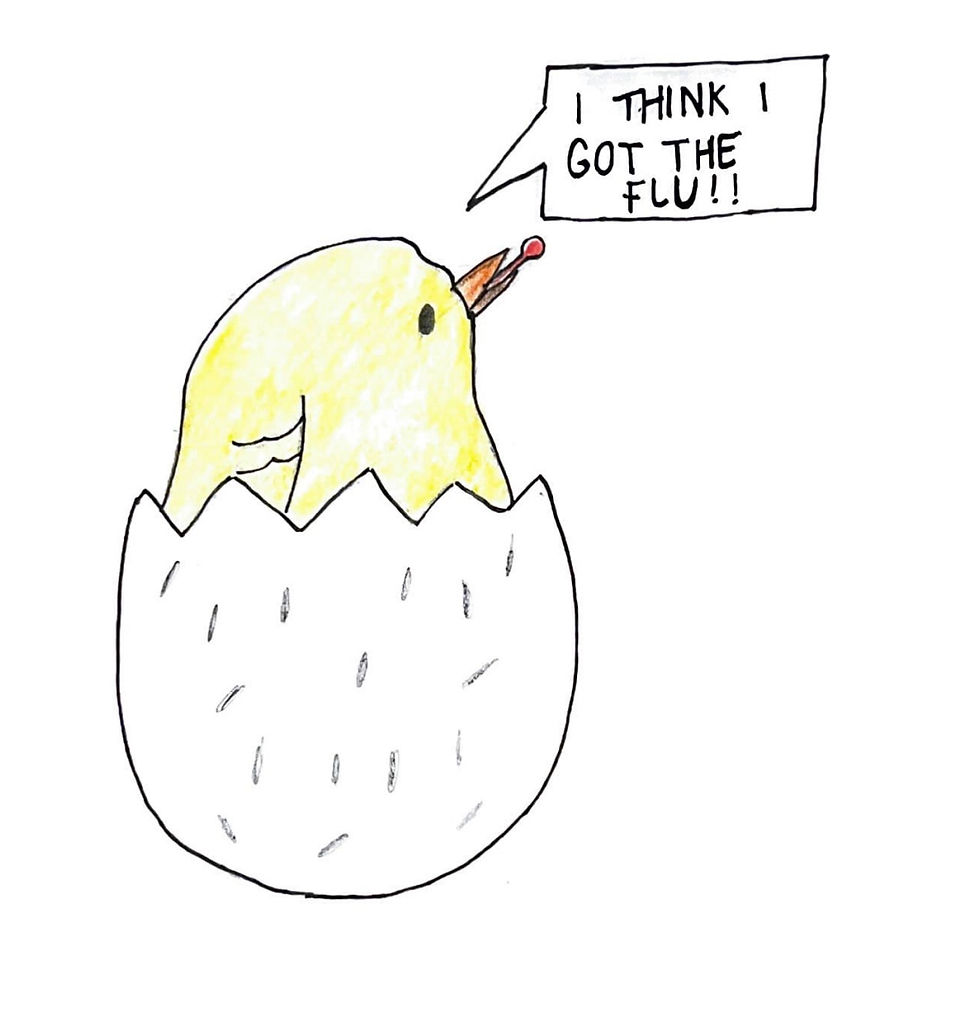No Eggs? You Can Blame the Bird Flu
- Mia Estevez-Breton '27
- Apr 30, 2025
- 2 min read
Updated: May 6, 2025

Egg prices have skyrocketed across the United States in the past few months due to the recent outbreak of bird flu but have started to come down. Avian influenza, also known as bird flu, is a viral infection that primarily targets birds.
The first known human case of bird flu was in Hong Kong in 1997, according to the Center for Disease Control and Prevention (CDC).
There are different types of bird flu, but influenza A (H5N1) and influenza A(H7N9) most commonly appear in humans. It is rare for the virus to be trans mitted from person to person. Humans usually become infected if they come into contact with an ill animal’s body fluid, like saliva or feces, or inhale the particles; thus, farmers and poultry workers are especially at risk.
Symptoms of bird flu usually include mild respiratory problems and pink eye, according to Cleveland Clinic. Birds, however, get avian influenza when they make contact with other infected birds or their residue.
Flocks known to have avian flu virus are taken out of the food supply. Causing outbreaks in poultry and dairy cows, the epidemic of H5N1 started in late March of 2024. The CDC reported that around 70 human cases have been confirmed in the US since March 19th, 2025. Through its flu surveillance system, the CDC monitors people with exposure to animals to prevent the virus and treat it earlier.
The spreading virus between birds has caused flocks to be culled and therefore resulted in a decrease in the egg supply. In the U.S., the virus has affected more than 168 million poultry, and the
global egg shortage has caused a 97% increase in egg prices since February of 2025, as reported by “USA Today.”
The United States Department ofAgriculture (USDA) has invested up to a billion dollars to combat the bird flu and reduce egg prices. This money is used to fund vaccine research to reduce the need to kill infected flocks and maintain egg production. Additionally, “The Economic Times” stated that the Trump administration has doubled egg imports from Brazil in an attempt to lower egg prices. When asked about the increase in egg prices, Talia Wissman ’27 stated, “I have definitely noticed the inflation in eggs. It is worrying to see such a food that is so commonly used become much more expensive.”
In the March 2nd “Sunday Skim,” a dining hall update stated that “hard cooked eggs would no longer be available...due to high prices and limited availability.” According to CBS News, however, egg prices have finally gone down 43% since the beginning of 2025. This change is a relief to many, especially those who plan to celebrate Easter. Studies show that egg sales go up 40% around the holiday’s weekend.
On the other hand, some are waiting to see how President Trump’s new tariffs will continue to impact egg prices. According to “ABC News,” many Americans are worried that the tariffs will only increase the already lofty prices.

